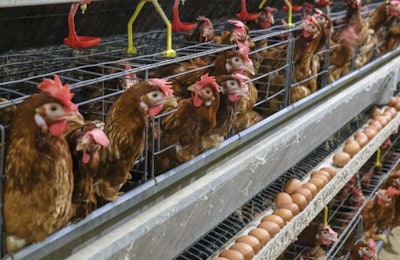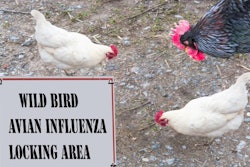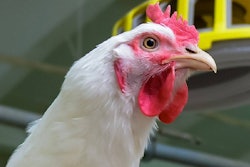
Virulent Newcastle disease (vND) has been confirmed in a second commercial poultry flock in California, the United States Department of Agriculture’s (USDA) Animal and Plant Health Inspection Service (APHIS) announced on January 8.
The latest case is in a commercial layer flock in Riverside County. This finding is part of an outbreak in southern California that began in May 2018 in backyard exhibition birds. The number of birds affected has not yet been revealed.
The first recently confirmed case of vND in a commercial poultry flock also occurred in Riverside County. That case was confirmed by APHIS on December 15, 2018. In that case, about 110,000 six-week-old layer pullets were affected. All of those pullets were killed and disposed of, according to the World Organisation for Animal Health (OIE).
Both findings of vND in commercial layer flocks are part of an outbreak in southern California that began in May 2018 in backyard exhibition birds. Prior to December, the last confirmed case of vND in commercial poultry in the U.S. occurred in 2003.
The new cases occurred in spite of an order from the California Department of Food and Agriculture (CDFA), in which State Veterinarian Annette Jones ordered that all birds be euthanized in Compton (Los Angeles County), Muscoy (San Bernardino County) and Mira Loma/Jurupa Valley (Riverside County). That order was announced in late November by California State Veterinarian Annette Jones, who said euthanizing the birds was necessary to help prevent the further spread of vND.
APHIS is working closely with CDFA to respond to the finding, limit the disease’s spread in commercial poultry, and then eradicate it. Federal and State partners are conducting additional surveillance and testing in the area, and are working with nearby commercial farms to increase biosecurity to prevent additional disease spread.
Amid the outbreak, APHIS is bird owners follow good biosecurity practices to help protect their birds from infectious diseases. These include simple steps like washing hands and scrubbing boots before and after entering a poultry area; and cleaning and disinfecting tires and equipment before moving them off the property.


















